On the earth of images, avenue images is likely one of the hottest genres. Many well-known avenue photographers have captured gorgeous pictures of on a regular basis life. These photographers have seized the essence of metropolis life, and their work is really inspirational. Should you’re eager about studying extra about avenue images, try this listing of well-known avenue photographers.
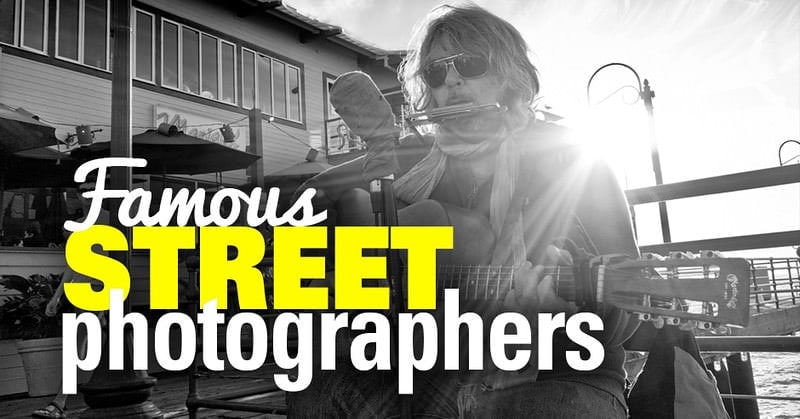
Let’s speak about Road Pictures! There’s been numerous pictures posted on the web over time which were self-categorized by photographers as Road Pictures, most of which match into the class whereas others are merely snapshots with a sure aesthetic stage.
So what precisely is Road Pictures, and the way is it outlined?
The definition of Road Pictures is definitely extraordinarily obscure. Probably the most accepted “time period” states that it’s a carried out artwork that options unmediated and randomness in public locations. One thing like “serendipity,” so to talk.
The photographer is an armed model of the solitary walker reconnoitering, stalking, cruising the city inferno, the voyeuristic stroller who discovers the town as a panorama of voluptuous extremes. Adept of the fun of watching, connoisseur of empathy, the flâneur finds the world “picturesque.
Susan Sontag, 1977
For the reason that definition has not but been enhanced by photographers, looking on the work of Road Pictures masters may also help higher inform us concerning the class and artwork itself like no different description has up to now. In reality, simply the time period “Road Pictures” itself has so many overlaps and nuances. For me, a few of these overlaps embrace Humanist and Social Pictures, Documentary Pictures, Candid Pictures, and Photojournalism.
Get Impressed By Well-known Road Photographers
To offer us additional perception into Road Pictures, right here’s a quick listing of 10 well-known avenue photographers whose work, I feel, encompasses what each aspiring Road Photographer ought to examine and, extra importantly, ponder.
1. Henri Cartier-Bresson (1908-2004)
Henri Cartier-Bresson was a French photographer extensively thought of the daddy of recent photojournalism and a pioneer of avenue images. Born on August 22, 1908, in Chanteloup, France, Cartier-Bresson developed an early curiosity in portray earlier than discovering his ardour for images.


Within the late Thirties, Cartier-Bresson co-founded the images company Magnum Photographs together with Robert Capa and David Seymour. This collective was instrumental in growing photojournalism as a career and helped set up images as a respectable artwork kind.
Cartier-Bresson’s inventive model is characterised by his “The Decisive Second” idea, which emphasizes the significance of timing and instinct in capturing {a photograph}. He believed there was a split-second by which the weather of a scene come collectively completely, and it was the photographer’s job to seize that second. This strategy requires a eager observational eye and the flexibility to anticipate and react shortly to unfolding occasions.
Cartier-Bresson’s work is widely known for its simplicity, class, and emotional resonance. His pictures usually seize candid moments of on a regular basis life, and his compositions are characterised by their steadiness and concord. His small, unobtrusive digicam allowed him to maneuver freely and unobtrusively by way of the streets, capturing scenes which may in any other case go unnoticed.


All through his profession, Cartier-Bresson traveled extensively, documenting main occasions and figures of the Twentieth century. His work has been exhibited in museums and galleries worldwide, and he has obtained quite a few awards and honors for his contributions to the sector of images. Cartier-Bresson handed away on August 3, 2004, however his legacy lives on by way of his timeless pictures and his affect on generations of photographers.
Henri Cartier-Bresson on the net:
2. Garry Winogrand (1928–1984)
Garry Winogrand was a distinguished American avenue photographer recognized for his spontaneous and dynamic pictures that captured the complexities of city life in post-war America. Born on January 14, 1928, within the Bronx, New York Metropolis, Winogrand served within the U.S. Air Pressure and studied images at Columbia College earlier than attending lessons with Alexey Brodovitch.
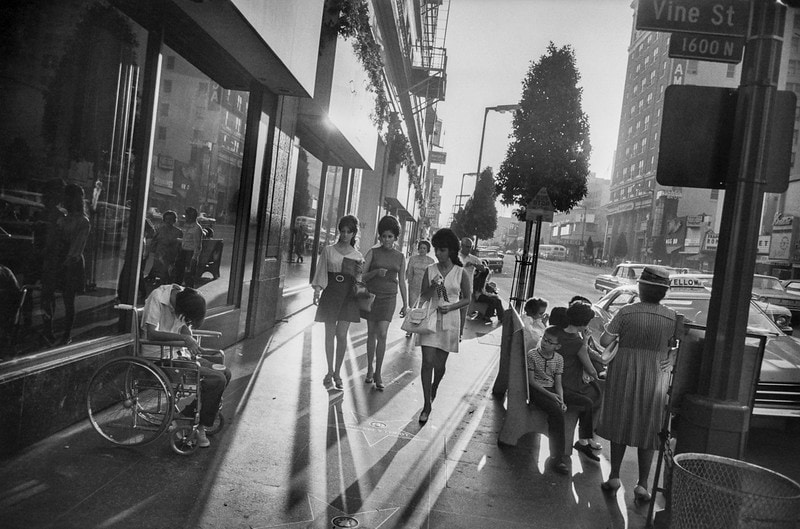

His work is characterised by its candid moments, usually captured with out trying by way of the viewfinder, leading to dynamic, unposed compositions. Winogrand’s pictures, which regularly characteristic tilted horizons and off-center framing, embody the “snapshot aesthetic” that emerged within the Sixties and 70s.
Winogrand’s intensive physique of labor offers an interesting and generally chaotic glimpse into American society throughout a time of great cultural and social change. He obtained a number of awards for his images, together with a Guggenheim Fellowship and a Nationwide Endowment for the Arts Fellowship.
Though he’s liable for capturing the iconic picture of Marilyn Monroe, Winogrand solely gained recognition for his work within the Sixties. He was praised by John Szarkowski, the Director of Pictures on the Museum of Trendy Artwork in New York, as “the central photographer of his technology.”


Winogrand’s revolutionary strategy to avenue images introduced pictures that touched the nerves of his viewers, particularly in the course of the politically charged moments of the period. He handed away on March 19, 1984, however his affect continues to be felt on the earth of avenue images and past.
Garry Winogrand on the net:
3. Vivian Maier (1926-2009)
Vivian Maier was an American avenue photographer whose work captured intimate moments and scenes from city life, predominantly in Chicago and New York, in the course of the mid-Twentieth century. Born on February 1, 1926, in New York Metropolis. For many of her life, she labored as a nanny whereas secretly pursuing her ardour for images.


Maier’s work is characterised by her candid and observational strategy to avenue images, usually utilizing a Rolleiflex twin-lens reflex digicam to shoot from the hip and seize spontaneous moments with out her topics being conscious. Her pictures are marked by robust compositions, intricate particulars, and a way of intimacy with the folks and scenes she captured.
Her inventive model is carefully related to the “humanist images” motion of the mid-Twentieth century, which emphasised the dignity and price of people and the importance of their on a regular basis lives. Maier’s work is widely known for its empathetic and compassionate portrayal of the folks and scenes she encountered on the streets.


Vivian Maier’s work remained undiscovered till after she died in 2009, when a big assortment of her negatives and prints was present in a storage locker. Since then, her work has been extensively exhibited in galleries and museums worldwide, and she or he is now considered probably the most necessary avenue photographers of the Twentieth century.
Though Maier by no means approached the inventive trade formally, her expertise and the sheer quantity of her magnificent pictures converse for themselves. She is taken into account by many, together with myself, to be one of many true masters of images. For a deeper understanding of her artistry and imaginative and prescient, I extremely suggest the documentary “Discovering Vivian Maier,” which earned an Academy Award nomination for Finest Documentary Characteristic in 2014.
Vivian Maier on the net:
4. Josef Koudelka (1938- )
Josef Koudelka is a famend Czech-French photographer celebrated for his highly effective avenue images documenting marginalized folks and social upheaval. Born on November 22, 1938, in Boskovice, Czechoslovakia (now the Czech Republic), Koudelka developed a ardour for images as a scholar on the Czech Technical College in Prague. His early work was commissioned by theater magazines, marking the start of his deep involvement with the artwork kind.


Koudelka’s work is characterised by its uncooked and gritty model, capturing moments of depth and emotion with precision in composition and timing. Utilizing a wide-angle lens, he incorporates the environment to offer a broader context for the subject material, leading to pictures marked by dramatic contrasts and powerful narratives.
His inventive model is usually described as humanistic and empathetic, specializing in the dignity and resilience of people confronted with adversity. Koudelka explores themes of displacement, loss, and the affect of political and social upheaval on peculiar folks.
Associated: 12 Inventive Pictures Concepts
Koudelka gained worldwide recognition for his pictures of the Soviet-led invasion of Czechoslovakia in 1968, which had been revealed anonymously as “P.P.” (Prague Photographer) to guard his identification and household. He later joined the Magnum Photographs company and continued to doc social and political points worldwide, together with gypsy communities in Japanese Europe, the Israeli-Palestinian battle, and the transformation of landscapes by way of industrialization.
His work has been extensively exhibited in museums and galleries worldwide, incomes him quite a few awards and honors, together with the Prix Nadar and the Grand Prix Nationwide de la Photographie. Koudelka continues to work as a photographer, capturing the complexities and contradictions of human existence together with his distinctive and highly effective visible language.
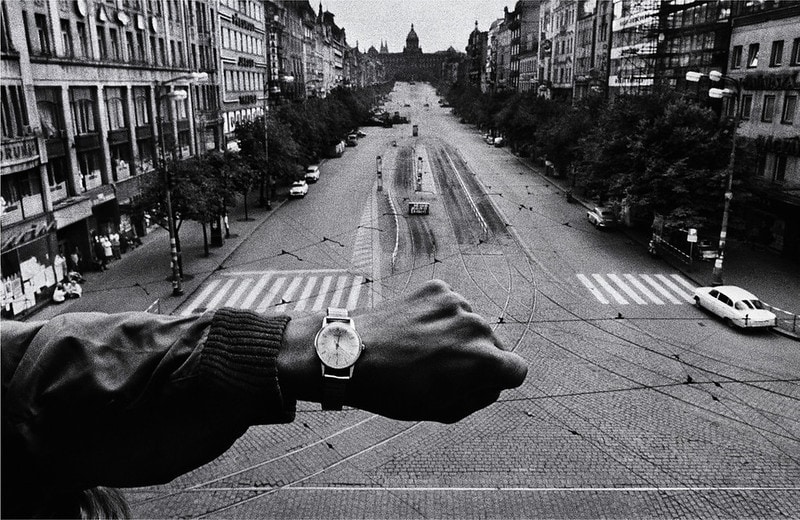

One in every of Koudelka’s most iconic pictures is {a photograph} taken on the precise second the Warsaw Pact navy forces invaded Prague. The picture includes a watch as a marker of this historic and tragic second, with a small portion of the sky enhancing the sensation of oppression looming over Prague. The empty streets within the foreground set the general tone for the town’s feelings that day, making it a haunting and symbolic illustration of the invasion.
Vivian Maier on the net:
5. Robert Doisneau (1912-1994)
Robert Doisneau was a French photographer celebrated for his charming pictures of life on the streets of Paris. Born on April 14, 1912, in Gentilly, a suburb of Paris. After finding out lithography and engraving on the École Estienne in Paris, he labored as a draftsman and graphic designer earlier than embracing images as a career.


Doisneau’s work is understood for its whimsical, poetic high quality, capturing candid moments of peculiar folks in on a regular basis conditions. His pictures usually evoke nostalgia and romanticism, highlighting the attraction and fantastic thing about Parisian life. They’re famous for his or her robust compositions, wealthy particulars, and the nice and cozy, intimate connection he had together with his topics.
His inventive model is described as humanist images, specializing in the dignity and humanity of people of their each day lives. Doisneau was adept at mixing into the background and capturing unposed moments, revealing human interactions’ humor, tenderness, and complexity.
One in every of Doisneau’s most well-known pictures is “Le Baiser de l’Hôtel de Ville” (The Kiss by the Hôtel de Ville), which captures a pair kissing amidst the hustle and bustle of Paris. The picture has turn out to be an emblem of romance and the timeless attract of the town, showcasing Doisneau’s distinctive capability to seek out magnificence and poetry in peculiar moments of life.


Regardless of being later acknowledged as posed, Doisneau’s iconic picture, “The Kiss” has such an excellent nature that many really feel it doesn’t matter. Alfred Eisenstaedt possible impressed him, whose {photograph} was revealed in Life in 1945 and shares a really comparable dynamic.
Doisneau was greater than a Road Photographer; he was additionally an excellent idea artist, because of his preparations that juxtaposed parts, leading to intriguing visions of society and even marks of surrealism. One in every of his hottest idea portraits is “Les Pains de Picasso” (1952), which is indescribable.


In Road Pictures, capturing humor is difficult, however Doisneau mastered it, showcasing his expertise for the style in lots of his pictures.
Robert Doisneau on the net:
6. Jill Freedman (1939-)
Jill Freedman was an American avenue photographer celebrated for her candid and highly effective pictures documenting the complexities of city life and social points. Born on October 19, 1939, in Pittsburgh, Pennsylvania, Freedman studied sociology on the College of Pittsburgh earlier than shifting to New York Metropolis, the place she found her ardour for images.


Freedman’s work is characterised by an empathetic and compassionate strategy to capturing the lives of peculiar folks, significantly these on the margins of society. Her pictures usually doc the each day lives of firefighters, law enforcement officials, and residents of city neighborhoods, revealing her topics’ resilience, energy, and dignity.
Her inventive model is described as documentary and observational, with a deal with the human expertise and the complexities of city residing. Freedman’s work is marked by wealthy particulars, robust compositions, and the emotional connection she established along with her topics. She usually used black-and-white movie to emphasise the uncooked and gritty nature of her captured scenes.
Associated: Black and White Pictures Quotes
Freedman’s work has been exhibited in galleries and museums worldwide and has obtained a number of awards and accolades for her images. She revealed a number of picture books, together with “Firehouse,” “Road Cops,” and “Circus Days.” Freedman continued to work as a photographer and advocate for social justice till her loss of life on October 9, 2019.


Celebrated as a splendid storyteller, Freedman’s work is a testomony to her dedication to documenting the human expertise, discovering magnificence, energy, and humanity in on a regular basis life.
Jill Freedman on the net:
7. Walker Evans (1903-1975)
Starting his profession within the late Nineteen Twenties, Evans shortly gained recognition for his goal and documentary model. Within the Thirties, he labored for the Farm Safety Administration (FSA), documenting rural poverty and hardship in the course of the Melancholy. His iconic FSA pictures, together with pictures of sharecroppers and their households, stay a number of the period’s most enduring and well-known pictures.


Evans’ inventive model is characterised by easy compositions, meticulous consideration to element, and an absence of sentimentality or manipulation. He had a outstanding capability to convey a way of dignity and humanity, even in essentially the most difficult circumstances, and his work is extensively considered a key contribution to American documentary images.
One in every of Evans’ most formidable avenue images initiatives occurred within the New York Metropolis subway, the place he captured candid pictures of varied subway riders inconspicuously. He used a 35mm digicam painted matte black and hid it underneath his topcoat, with the lens peeking by way of the opening between two buttons.
After his work with the FSA, Evans continued to seize pictures of city environments, avenue scenes, and vernacular structure. His work has been extensively exhibited in museums and galleries around the globe and is taken into account probably the most necessary and influential photographers of the Twentieth century.
Evans’ work stands as a testomony to his dedication to documenting the social and financial realities of his time, and his pictures proceed to be celebrated for his or her highly effective and thought-provoking portrayal of American life. His aim of making “literate, authoritative, and transcendent pictures” was actually achieved, leaving an enduring legacy on the earth of images.
Walker Evans was an excellent photographer and photojournalist whose most iconic work consists of his time with the Farm Safety Administration (FSA) the place he documented the cruel results of the Nice Melancholy on American society. Throughout that point, he stated that his aim was to make literate, authoritative, and transcendent pictures, which is strictly what he did.


One in every of his most formidable Road Pictures initiatives was finished within the New York Metropolis subway, the place he photographed varied subway riders inconspicuously. How did he do it? He took a 35mm digicam, painted it matte black, and hid it underneath his topcoat the place the lens peeked by way of the opening between two buttons.
Walker Evans on the net:
8. Susan Meiselas (1948-)
Susan Meiselas is an American documentary photographer whose work has been revealed in lots of newspapers and magazines, together with The New York Occasions, The Occasions, Time, GEO, and Paris Match. She joined the Magnum Photograph Company in 1980 and has been a distinguished member ever since.
Meiselas first gained recognition within the mid-Seventies along with her mission “Carnival Strippers,” which documented the lives of striptease performers in New England. Offered in a e book with accompanying audio, this work offers an unfiltered glimpse into an neglected subculture.


Meiselas’s pictures are notable for his or her robust narrative high quality, wealthy particulars, and vibrant colours. She has a capability to seize moments of depth with a eager sense of composition and timing, creating pictures that resonate with viewers.
Meiselas has obtained quite a few awards all through her profession, together with the 1979 Robert Capa Gold Medal and the 1992 MacArthur Fellowship. Her work has been extensively exhibited worldwide and has earned her a spot as a revered member of the Magnum Photographs company.


As we speak, Meiselas continues her work in images, specializing in human rights, identification, and cultural reminiscence. Her dedication to documenting the human expertise and discovering magnificence in on a regular basis moments has created a robust and enduring visible legacy.
Associated: Are you aware the costliest {photograph} in historical past?
Susan Meiselas on the net:
9. Elliott Erwitt (1928-)
Elliott Erwitt is a celebrated American documentary photographer famend for his candid and humorous pictures of ironic and absurd conditions in on a regular basis settings. Born on July 26, 1928, in Paris, France, Erwitt grew up in Italy earlier than emigrating to the US in 1939. Very like his modern, Robert Doisneau, he has mastered the artwork of capturing humor within the streets.
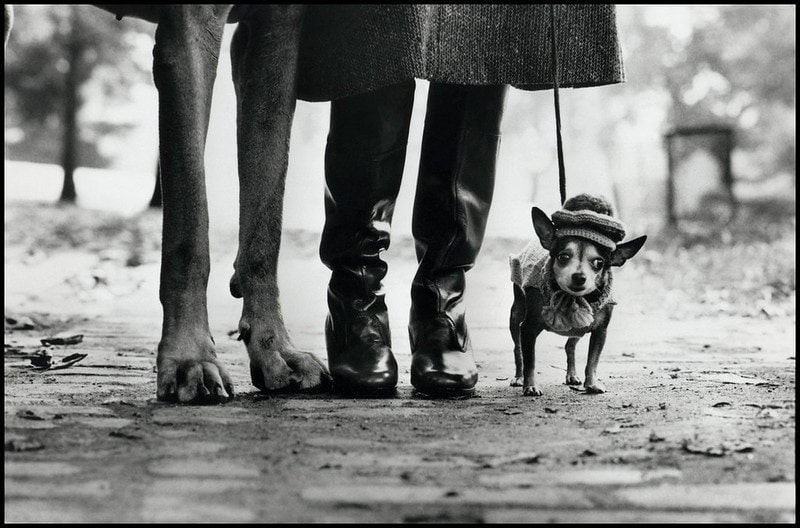

Erwitt’s work is characterised by its candid and observational strategy, capturing quirky, absurd, and surprising moments in folks’s and animals’ lives. His pictures usually characteristic canines, reflecting his love for these creatures. He possesses a singular capability to convey the character and character of his topics.
His inventive model, usually described as documentary and avenue images, focuses on the humor and humanity present in on a regular basis conditions. Sturdy compositions, playful juxtapositions, and an unerring eye for timing mark Erwitt’s work. He usually makes use of a 35mm digicam and black-and-white movie, which provides to the timeless high quality of his pictures.
A member of the celebrated Magnum Photographs cooperative since 1953, Erwitt’s work has been extensively exhibited in museums and galleries worldwide, incomes him quite a few awards and honors, together with the Royal Photographic Society’s Centenary Medal and Honorary Fellowship.


Elliott Erwitt’s intensive physique of labor is a testomony to his eager remark abilities and skill to seek out humor, magnificence, and emotion in on a regular basis life. His pictures, comparable to “USA, 2000, New York Metropolis,” showcase his distinctive tackle avenue images.


In the meantime, pictures like “Cracked Glass with Boy” reveal a unique, darker aspect of Erwitt’s expertise, symbolizing violence. Moreover, his iconic picture “Paris, France, 1989” is usually mistaken for a piece by Henri Cartier-Bresson, demonstrating how properly Erwitt has mastered the “Decisive Second” method.


Elliott Erwitt on the net:
10. Eugene Smith (1918-1978)
Eugene Smith was an American photojournalist famend for his evocative and humanistic model of images. Born on December 30, 1918, in Wichita, Kansas, he started his profession in highschool, working for native newspapers.


Smith’s work is characterised by emotional depth and narrative energy, usually delving into complicated social and political points. His pictures stand out for his or her robust compositions, wealthy particulars, and intimate connections together with his topics. His model is rooted in documentary and photojournalistic approaches, emphasizing the human expertise and the consequences of social and political occasions on peculiar folks.


Throughout World Struggle II, Smith served as a fight photographer, capturing the brutal realities of battle. He later labored for Life journal, producing poignant picture essays like “Nation Physician,” “Nurse Midwife,” and “Minamata,” which highlighted the consequences of mercury poisoning in a Japanese village. His work has been extensively exhibited and celebrated, incomes him quite a few awards and honors.


Smith’s immersive strategy to storytelling is clear in picture essays like “Nation Physician” and “Spanish Village.” Regardless of dealing with controversy for staging some scenes, his dedication to capturing humanity’s depth and resilience stays evident. His intensive physique of labor, together with initiatives just like the Jazz Loft Mission, documenting Manhattan jazz musicians, showcases his distinctive imaginative and prescient and dedication to storytelling.
Eugene Smith on the net:
11. Gianni Berengo Gardin (1930-)
Gianni Berengo Gardin is an acclaimed Italian photographer celebrated for his nuanced reportage and evocative visible storytelling.
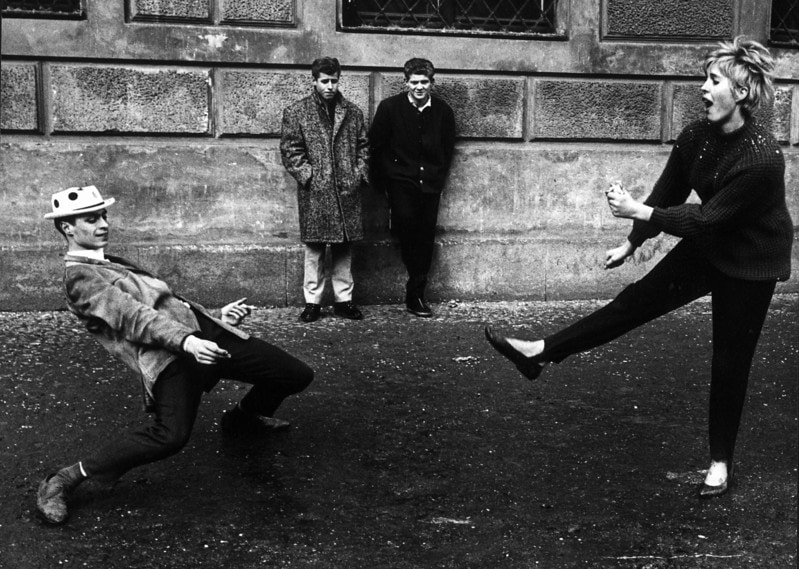

Gardin’s work, characterised by sensitivity and a eager remark of the human situation, has been outlined by black-and-white pictures that poetically seize the essence of moments and feelings. His pictures, which regularly doc each day life’s magnificence and struggles, replicate his profound appreciation for folks and their environments.
His inventive model, rooted in documentary and avenue images, emphasizes storytelling and focuses on social and cultural elements of life. Gardin usually employs a 35mm digicam, enabling spontaneity and fostering an intimate, unobtrusive connection together with his topics.
With almost 980 reportages specializing in social points, structure, and the pure atmosphere, Gardin’s first {photograph} was revealed in 1954 in Il Mondo. He has collaborated with varied publications, together with Domus, Vogue, and Le Monde. His work has been exhibited extensively in galleries and museums worldwide, and he’s a member of the celebrated Magnum Photographs company.
Gardin has obtained quite a few awards, together with the World Press Photograph Award in 1963, the Brassaï Award in 1990, the French Order of Arts and Letters, and the Medal of the President of the Italian Republic. His intensive physique of labor, marked by depth, compassion, and visible poetry, has solidified his place as certainly one of his technology’s most necessary and influential avenue photographers.
Gianni Berengo Gardin on the net:
12. William Klein (1928-)
William Klein is a famend American-born photographer, painter, and filmmaker recognized for his unconventional and groundbreaking strategy to avenue images. Born on April 19, 1928, in New York Metropolis, Klein developed an curiosity in artwork at an early age and went on to review portray and sculpture on the Sorbonne in Paris.


Klein started his profession as a trend photographer within the late Nineteen Fifties, however his work as a avenue photographer introduced him worldwide acclaim. His first picture e book, “Life is Good & Good for You in New York,” revealed in 1956, was a groundbreaking exploration of the gritty and chaotic avenue lifetime of New York Metropolis. Klein’s use of wide-angle lenses, excessive distinction, and unconventional compositions challenged the standard norms of images and set the stage for a brand new wave of avenue photographers.


Klein’s inventive model is characterised by its daring and dynamic compositions, excessive distinction, and uncooked, unfiltered portrayal of city life. His work usually options dramatic angles, distorted views, and a way of immediacy and power. Klein’s pictures are famous for his or her capability to seize metropolis life’s chaos, complexity, and sweetness.
William Klein’s revolutionary and influential strategy to avenue images has left an enduring affect on the medium, and his work continues to be celebrated for its boldness, creativity, and distinctive perspective on the city expertise.
William Klein on the net:
13. Lee Friedlander (1934-)
Lee Friedlander is a celebrated American photographer recognized for his revolutionary and distinctive strategy to avenue images. Born on July 14, 1934, in Aberdeen, Washington, Friedlander developed an early curiosity in images and started taking photos whereas nonetheless in highschool.


Friedlander’s work is characterised by its complicated and multi-layered compositions, usually that includes a number of topics and parts throughout the body. His pictures usually embrace reflections, shadows, and different visible parts that add depth and intrigue to the picture. Friedlander’s work is famous for its capability to seize the on a regular basis and the mundane in a means that reveals the wonder and complexity of the world round us.


Friedlander’s reference to John Szarkowski, the influential curator of images on the Museum of Trendy Artwork (MoMA) in New York, was a pivotal second in his profession. Within the early Sixties, Szarkowski included Friedlander’s work in a number of necessary exhibitions at MoMA, together with “New Paperwork” in 1967, that includes the work of Garry Winogrand and Diane Arbus. This exhibition helped set up Friedlander as a major determine on the earth of images and contributed to the popularity of avenue images as a respectable and necessary artwork kind.
Lee Friedlander’s intensive physique of labor is a testomony to his eager remark abilities and skill to seek out magnificence, humor, and emotion in on a regular basis moments. His pictures proceed to be celebrated for his or her complexity, depth, and visible richness.
Lee Friedlander on the net:
14. Helen Levitt (1913-2009)
Helen Levitt was an esteemed American avenue photographer celebrated for her poignant and poetic pictures of city life. Born on August 31, 1913, in Brooklyn, New York, Levitt’s fascination with images started within the late Thirties when she began documenting the streets of New York Metropolis.


Levitt’s work is characterised by its empathetic and humanistic portrayal of the on a regular basis lives of peculiar folks, particularly kids. Her pictures usually seize moments of play, interplay, and introspection, revealing the humor, marvel, and complexity of human experiences. Levitt’s pictures are famous for his or her robust compositions, vibrant colours, and the intimate connections she established along with her topics.
Within the late Forties, Levitt collaborated with filmmaker Janice Loeb and author James Agee to create the documentary movie “Within the Road,” which captured the on a regular basis lifetime of the residents of New York’s East Harlem neighborhood. The movie is a testomony to Levitt’s dedication to documenting the vibrancy and variety of city life.
Levitt was an early adopter of coloration images and started experimenting with it within the early Nineteen Fifties. She used coloration slides to seize the full of life and colourful avenue scenes of New York Metropolis. Levitt’s pioneering work in coloration images helped elevate the medium as a critical type of inventive expression.
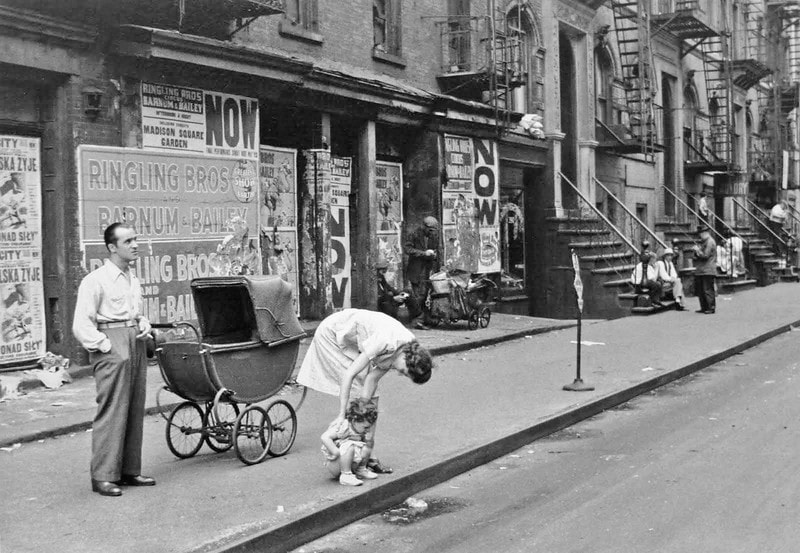

Helen Levitt’s intensive physique of labor is a testomony to her eager remark abilities and skill to seek out magnificence, humor, and emotion in on a regular basis life. Her pictures proceed to be celebrated for his or her heat, attraction, and emotional resonance, making her probably the most necessary and influential avenue photographers of the Twentieth century.
Helen Levitt on the net:
15. Saul Leiter (1923-2013)
Saul Leiter was a famend American avenue photographer and painter recognized for his pioneering use of coloration in images. Born on December 3, 1923, in Pittsburgh, Pennsylvania, Leiter moved to New York Metropolis within the Forties to pursue a profession in artwork. Whereas he initially targeted on portray, he found images by way of his affiliation with the Summary Expressionist motion and shortly embraced the medium as his main type of expression.


Within the Nineteen Fifties, Leiter started working as a trend photographer for Harper’s Bazaar, the place he introduced his distinctive sensibility and magnificence to the world of trend images. His work for the journal showcased his capability to create visually putting and emotionally resonant pictures that transcended the boundaries of economic images.


Leiter’s work is characterised by its intimate and contemplative model, capturing delicate and sometimes neglected moments of city life. His pictures are famous for his or her wealthy coloration palette, layered compositions, and the interaction of sunshine and shadow. Leiter’s pictures usually characteristic reflections, home windows, and fragments of scenes, inviting viewers to discover the complexities of the visible world.
His inventive model is usually described as impressionistic, specializing in the pictures’ emotional and atmospheric qualities. Leiter was recognized for his capability to seek out magnificence within the mundane, and his work is marked by its poetic sensibility.
He was acknowledged for his imagery in each black and white and coloration, and his pioneering use of coloration in avenue images helped set up it as a respectable type of inventive expression.
Saul Leiter on the net:
Well-known Road Photographers | Last Ideas
In conclusion, these 15 well-known avenue photographers have helped form the style of avenue images. Should you’re eager about making an attempt your hand at avenue images, why not begin by testing the work of certainly one of these masters?
